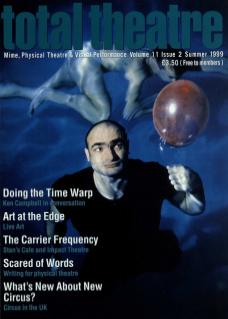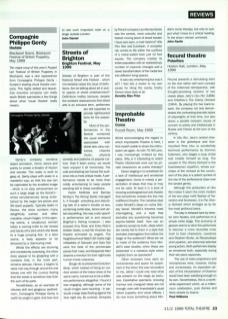Fecund presents a stimulating slant on the now rather well-worn concept of the millennial retrospective, with thought-provoking versions of two classic plays: Jarry's Ubu Roi (1896) and Chekhov's The Cherry Orchard (1904). By playing the two back-to-back, the company not only demonstrates the contrasting dramatic styles of playwrights at that time, but also draws a parallel between issues of concern to artists and intellectuals in Russia and France at the turn of the century.
In Ubu Roi, Jarry's central character is the grotesque and foul-mouthed Pere Ubu (a wonderfully technical performance by Dominic Coleman), who stages a coup d'etat and installs himself as king. The usurper in The Cherry Orchard is the businessman Lopakhin, whose purchase of the orchard at the conclusion of the play is a potent symbol of the rise of the professional class over the landed gentry.
Although this production of Ubu Roi makes it seem the more modern of the two plays (with flashes of Tarantino and Scorsese), it is The Cherry Orchard which emerges as by far the most profound piece.
The play is stripped bare by director John Keates, and performed on a simple white stage. This economy of gesture seems to drive the performers to discover a more recondite inner truth to their characters. Lawrence and Stephen Burke, as Ranyevskaya and Lopakhin, are extremely talented young actors. Both performers display an emotional truth, especially during their set-piece speeches.
The use of video projections and microphones were, however, tricksy and unnecessary. An expanded version of this interpretation of Chekhov would have been satisfying enough on its own. Nevertheless, this is a worthwhile experiment which, as a millennium celebration, puts domes and ferris wheels to shame.

